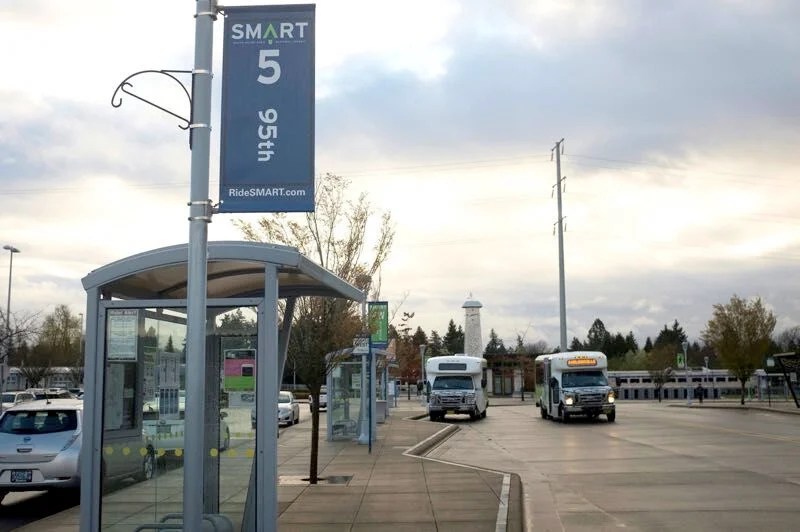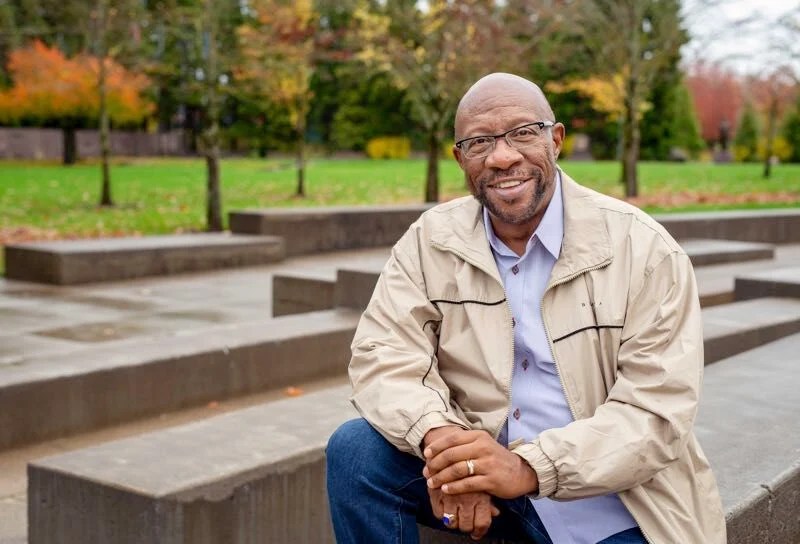Wilsonville mayor accuses city councilor of ‘ambushing,’ disrespecting city staff
Published 4:01 pm Tuesday, May 20, 2025

- Mayor Shawn O'Neil recently criticized City Councilor Adam Cunningham over concerns related to the proposed transit budget. (Staff File Photo)
During a recent meeting to discuss and approve Wilsonville’s 2025-26 budget, Mayor Shawn O’Neil criticized City Councilor Adam Cunningham for the manner in which he delivered budget questions and concerns to staff.
The city’s 2025-26 budget was approved in an 8-1 vote by the budget committee — which consists of the Wilsonville City Council and community volunteers — on Tuesday, May 13. Cunningham cast the dissenting vote out of concern regarding the addition of new employees and a bus route, primarily paid for by state funding, as part of the transit budget.
The vote, which moved the budget to the City Council for final approval at a later date, followed a tense dispute between the councilor and O’Neil over the questions and concerns Cunningham put towards Wilsonville’s transit director during the first budget meeting on Wednesday, May 7.
Dispute between O’Neil and Cunningham
During the May 13 vote, O’Neil accused Cunningham of “ambushing” South Metro Area Regional Transit Director Brashear in the previous meeting with his questions, rather than following traditional protocol of emailing staff ahead of the meeting with the concerns. O’Neil claimed Cunningham’s actions were “all for a show.”
O’Neil said that he was involved with the city’s budget committee before being elected mayor, and that he generally emails staff privately instead of “leading with ambushes.” He also noted that the funding for the additional transit staff is coming primarily from outside of the city.
“If we had acted consistently like most council that I’ve watched as a budget member citizen, we would have asked questions privately, sent an email in, gotten surprised (by the answers), instead of ambushes of staff, which I thought was inappropriate last meeting,” O’Neil said. “I think that trying to present an opposite view, just for the sake of having an opposite view politically, is not in the best interest of the city.”
In a long public statement released on Thursday, May 15, Cunningham reiterated his concerns with the proposed transit budget and said O’Neil falsely accused him of ambushing Brashear.
“These accusations were completely uncalled for and harmful to this council,” Cunningham wrote. “They undermined our intentional work these last several months to act as a unified council. I’ve engaged respectfully with Mr. O’Neil, even praising his efforts publicly and privately.”
Cunningham’s concerns about funds, crime
The proposed $9.9 million transit budget includes $250,000 for five new full-time employees, including three to operate a bus route going to Clackamas Town Center and two to be located at a regional customer service center for South Metro Area Regional Transit — Wilsonville’s public transit service — and other nearby communities. The service center is planned to be on the first floor of the transit-oriented development project to construct affordable housing in Wilsonville and the staff for the center and bus route would primarily be paid for through the Statewide Transportation Improvement Fund.
SMART anticipates receiving $1.8 million in STIF funding in the next fiscal year.
Brashear said during the May 7 meeting that he estimates the operating costs for the new route to be approximately $1.3 million, which will primarily be funded by TriMet’s STIF money because the route lies outside of SMART’s service area.
One of Cunningham’s concerns, mentioned during the May 13 meeting, is adding full-time employees while the transit budget reserves are on a downward trend.
“The transit fund is on a downward decline over the next five years in the forecast, yet we’re looking at adding employees that are going to add to that issue,” Cunningham said, after noting that no other city department had asked for significant changes in their budget proposals and adding that he foresaw the employees ultimately being paid for by the city in perpetuity. “I don’t see how it’s responsible.”
Later in the discussion, after budget committee member Synthea Russel pointed to Brashear’s comment that the funding for the proposed additions to SMART will primarily come from “other people’s money,” Cunningham clarified that he understood this but believed if SMART’s funds continued on their current downward trajectory, it might need assistance in the future to fund the employees. This could mean an increase to the payroll tax “that is going to hurt our local businesses.”
“I’m urging caution here,” Cunningham said. “I think if we were a business looking at a graph like this, we wouldn’t continue expanding on something that’s heading that direction.”
Other concerns raised by Cunningham during the May 7 meeting revolved around safety and crime. He echoed an observation from Councilor Katie Dunwell that Clackamas Town Center has a high rate of crime and the free bus system could allow for those committing crimes in that area to travel to Wilsonville and do the same.
Cunningham said that the transit customer service center, described as a place community members can “rest and charge their cell phone,” would allow people to spend their day in the transit center, and “it might not be people that some of the neighbors want as their neighbors.”
Brashear emphasized the role transit plays for those who are unhoused while acknowledging the possibility the new route may not function as planned. He viewed the issue through the lens that transit helps connect people to resources.
In an interview, Brashear said he was unaware of the “perception of crime” at Clackamas Town Center when determining the route, but the knowledge would not have changed the plans. The location was determined based on rider demand and he said crime statistics of a proposed destination do not factor into the decision. He noted that he had not heard concerns about crime related to the route before the budget meeting and in his four decades of work across various transit agencies, Wilsonville has “the safest system” he has worked for.
“It was disheartening to hear some of those discussions. It hurts … on a human level, it hurts,” Brashear said.
When asked if he felt disrespected by Cunningham during the first budget meeting, Brashear said he has “thick skin” and has heard comments like those made by the councilors before.
“If I did, I felt disrespected for the entire city, the folks that were listening to it, that had to witness the ‘sausage making,’ if you will,” Brashear said, adding that he feels the “gotcha” approach “makes for good theater sometimes, but I don’t know that it’s good business.” He wished the interaction could have happened differently, such as answering Cunningham’s questions via email or over the phone.
Brashear also emphasized in the interview that the transit budget does not pull from the general fund, for which expenses are projected to outpace revenue in coming years. Wilsonville’s transit service is funded through payroll taxes along with federal or state money.
O’Neil noted during the May 13 meeting that he believed Wilsonville Police Chief Robert Wurpes would “have a different opinion” than Cunningham on the safety and crime risks.
Councilor Anne Shevlin said during the meeting that “an assumption is being made without facts” that transit riders would bring crime to Wilsonville.
“I believe that people are entitled to use transit. Just because someone has a lower income doesn’t mean that they bring crime to our community,” Shevlin said. “Of course we have to worry about crime; we have to worry about safety. But I’m not concerned about people that are using our public transit.”
Cunningham responded that Shevlin’s characterization of his comments was “absurd” and he did not believe everyone who rode transit was a criminal or a bad person.
“But there is an element of utilizing transit for people to travel to other areas and commit crimes. It’s absolutely true,” Cunningham said, noting media articles in September 2023 that found residue of methamphetamine, fentanyl and cocaine in TriMet Max trains. An article in The Oregonian cited methamphetamine found in “low levels” in 100% of air samples and 98% of surface samples, fentanyl in 25% of air samples and 46% of surface samples, and cocaine in 45% of tested samples.
The new bus route to Clackamas Town Center may connect with TriMet transit at the station.
“Some people aren’t going to recognize it, some people aren’t going to share my concerns. That’s OK. I understand that. But I am going to voice my concerns, and I am going to ask the questions, and I am going to point these things out, because they need to be part of the discussion,” Cunningham said, reiterating that he rejected the accusations of disrespecting and ambushing staff.
He added in his May 15 statement that it is his “duty to ensure transparency, voice concerns of citizens, and prioritize Wilsonville’s well being.”
“Despite baseless accusations, this work will continue, undeterred. I will ask staff technical questions ahead of time when appropriate and will make every effort to share that information with my fellow council members and the public in open meetings. As I have done in the past, I will continue to shine light on inconvenient truths,” Cunningham said in the statement.
O’Neil declined to comment on Cunningham’s statement.





